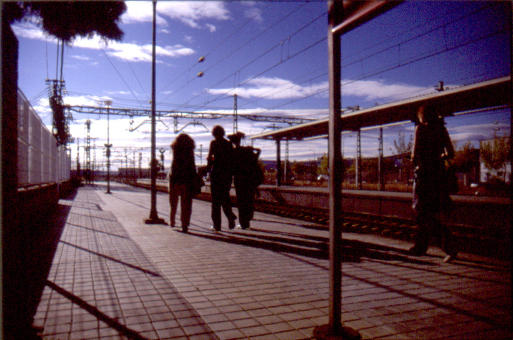Aquest és un projecte de co-investigació entre diferents dones que o bé ja havien iniciat una trajectòria de reflexió i pràctica al voltant de les transformacions del món laboral amb grup (treball zero, sexe, mentides i precarietat) o individualment, o bé desitjaven començar-la i aquestes inquietuds convergeixen el 20J del 2002, dia de la Vaga General convocada pels sindicats.
Conscients que el procés productiu del nou context laboral completament transformat la tendència predominant és la creixent valorització del treball immaterial (el treball afectiu, comunicatiu, creatiu, de descodificació de símbols, de manipulació de codis,) no s'interromp amb una vaga d'aquest tipus i que la precarització del mercat laboral s'ha ampliat fins al punt que la major part de les treballadores ja ni tan sols es veuen afectades per les noves reformes contra les que se celebra la vaga (que pretenen retallar encara més els drets i la protecció laboral) tractem de pensar en una nova manera d'estar en vaga que serveixi per posar-nos en comunicació amb aquestes noves realitats del mercat laboral. Vam decidir llavors transformar el clàssic piquet per un piquet-enquesta (no ens vèiem amb coratge per increpar una precària contractada per hores en un súper o per tancar el petit comerç de fruits secs d'una immigrant perquè, al cap i a la fi, tot i els molts motius per aturar i protestar: per qui s'havia convocat la vaga? amb qui s'havia pensat? Hi havia algun mínim interès sindical per la realitat dels precaris, dels immigrants, de les mestresses de casa? És que el atur detenia el procés productiu de les treballadores domèstiques, de les traductores, dissenyadores, programadores de totes les treballadores autònomes que la interrupció o no d’ aquest dia no faria més que duplicar la seva feina del dia següent? Ens va semblar més productiu intentar preguntar a aquelles dones que treballaven (o consumien aquest dia) i les que circulaven pel carrer. Aquest petit i discret esbós de co-investigació va ser el punt d'inici de les derives.

... Ens impulsava, sobretot, el desig de conèixer en el trajecte, de comunicar-nos pel camí, de conèixer aquelles noves situacions i realitats del mercat laboral precaritzat i de la vida posada a treballar des de la seva pròpia vivència: explicant-nos unes a les altres. La realització d'una cartografia del treball precaritzat de les dones, a partir de la comunicació, la reflexió conjunta i el registre de tot això en un intent d'abordar una producció de sabers que quedés materialitzada al màxim (fotografies, vídeo, gravació, relats escrits ) per anar acumulant un material que servís per estendre encara més la comunicació de la nostra experiència.